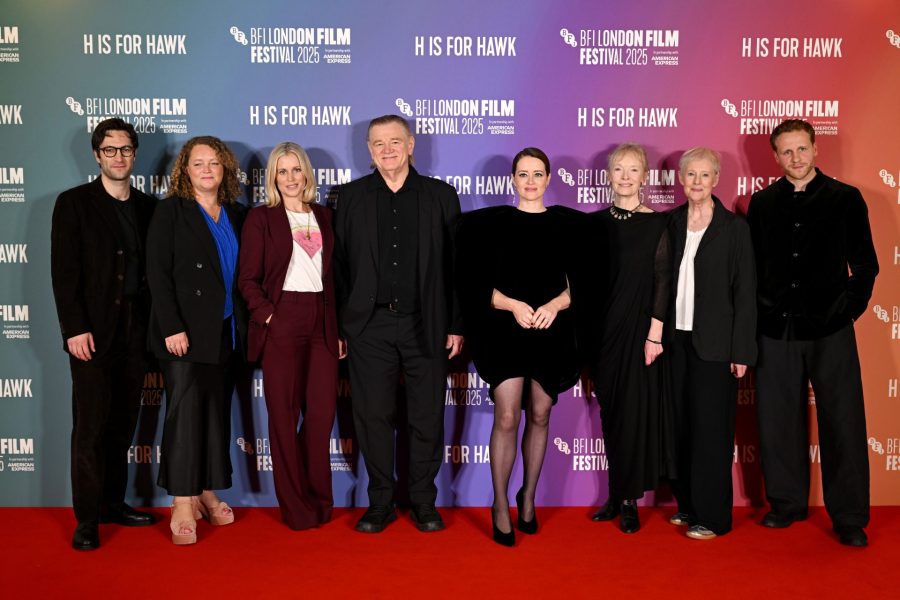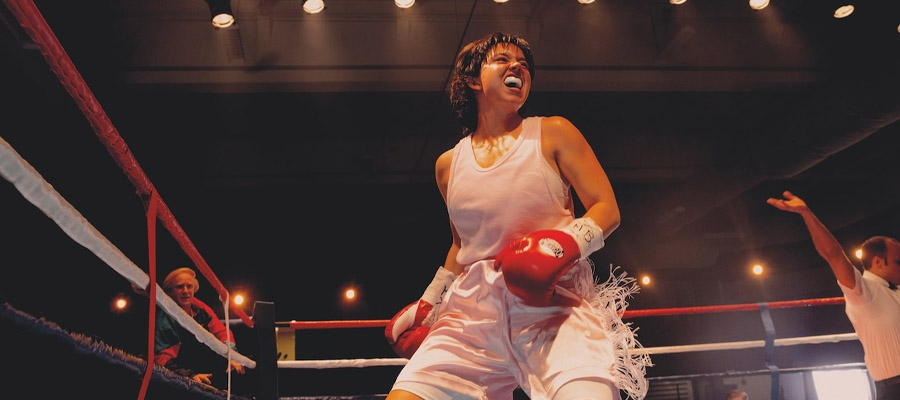Oscar Wilde once said that life imitates art more than art imitates life. Everyday human existence already has an absurdist, fabulist quality to it, something that naturally attracts artists who then harness the raw materials to craft dramatic works. It's a philosophy that underpins Joachim Trier's impressive new film Sentimental Value.
The movie opens with two memorable sequences. Firstly, an unnamed, omnipotent narrator personifies an apparently ordinary house in Oslo, taking us through its recent history and establishing our contingent of central characters. It's almost a wholesome twist on the Shirley Jackson formula, asking us whether mere bricks and mortar can ever be imbued with a conscious sense of emotional history.
We then cut ahead several years later to one of the film's core characters, Nora Borg (Renate Reinsve), who is about to take to the stage in The Seagull at the Oslo National Theatre. She is terrified and begins clawing at her period costume, relying on the technicians to calm her down so she can make her grand entrance. It's a quietly agonising set-piece that will strike a nerve with anyone who's quailed at presenting themself in front of a live audience.
Nora is estranged from her father, the highly regarded but narcissistic film director Gustav (Stellan Skarsgard). Decades earlier, Gustav employed Nora's sister Agnes (Inga Ibsdotter Lilleaas) in a World War II drama. He's now returned to the family fold after the death of his ex-wife, Nora and Agnes' mother, to make his final masterpiece, and Gustav wants Nora in the pivotal role, scorning her desire to prioritise stage work for an ageing audience.
Moreover, he wants to appropriate the family home to fully blur the lines between movie set and lived-in reality. Nora turns him down, citing Gustav's difficult nature and the years of unspoken resentment. He then turns to American star Rachel Kemp (Elle Fanning) who subsequently struggles to unlock Gustav's motivations in crafting the role, not to mention that she is out of place as an American in a Scandinavian production.
The film is a magical slow burn: from high to low, optimistic to melancholic, the film stacks a series of vignettes to create a complex emotional tapestry. Gustav's first meeting with Rachel gives way to a gloriously free-wheeling scene on a beach in which she escapes her boot-licking coterie (the movie is very acute as to the fakery of the PR scene) by taking a horse-drawn chariot back to her hotel. Later on, a scene of reconciliation between siblings Nora and Agnes is quite breath-taking in its raw, unfocused sense of intimacy.
This is further augmented by Trier's tendency slip in and out of fantasy and reality. When a new scene begins, how can we be sure that what we're watching is the latest chapter in the Borg family's existence, or a carefully stage-managed facsimile on the part of Gustav, the latest stage in the cinematic retelling of his family history?
Reinsve again digs into the loneliness that earmarked her turn in Trier's terrific The Worst Person in the World, and yet there's a greater sense of magnanimous scope in this film, balancing Nora's oft-alluded-to struggles with depression with Gustav's own regrets. He's carved out a career as a celebrated filmmaker but must reconcile with the artistic exploitation of his own family, not to mention the daughters whom he abandoned when he was younger.
Skarsgard's weathered features are made for the camera, speaking of irascibility and sympathy often within the space of the same scene. More readily sympathetic turns come from Lilleaas and Fanning as, respectively, the more level-headed sister and the gracious A-list actress who must confront the limitations of her own talents.
There's also a healthy sprinkling of black humour. When Rachel first arrives at Gustav's home, to help her absorb the atmosphere, he tricks her into thinking an IKEA stool was used by his mother to aid in her suicide. There's also the most unlikely of things: a great gag at the expense of Gaspar Noe's brutal arthouse drama Irreversible.
Trier's film threatens to lose its deliciously ambiguous qualities as it straightens itself out in the final act. This is a movie that thrives best in the liminal space between meaning and perceived meaning, between pragmatism and sentiment. It's a wise film, alert to both momentary frissons and the wide-ranging span of a specific person's existence.
Sentimental Value was a Gala screening at the London Film Festival 2025









